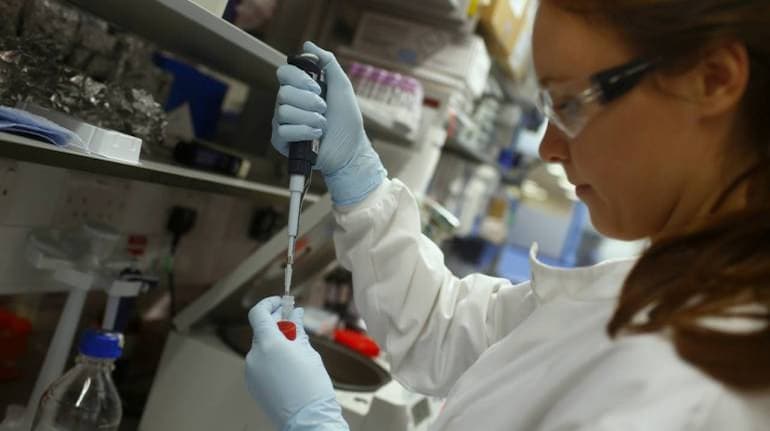



Countries with mandatory Bacillus Calmette-Guérin (BCG) vaccinations have a 10 times lower death rate from the novel coronavirus (scientific name SARS-CoV-2), compared to those without it, a new study has shown, The Economic Times reported.
The BCG vaccine is administered at birth in countries such as India, Japan and Brazil which have historically suffered from tuberculosis and is a part of their universal vaccination policy. Many rich countries such as the US, the Netherlands or Italy—all suffering widely from the disease—do not incorporate this.
Follow our LIVE Updates on the coronavirus pandemic here
The paper is co-authored by Paul Hegarty and Helen Zafirakis from Mater Misericordiae University Hospital in Ireland, Andrew DiNardo from the Baylor College of Medicine in, Houston, Texas, and Dr Ashish Kamath, a professor of Urologic Oncology (Surgery) and cancer research at MD Anderson Cancer Centre in Houston, Texas. It is presently under review for publication by science journals.
The study analysed a dataset from 178 countries of coronavirus disease (COVID-19) cases and deaths recorded from March 9-24 (15 days). This included 21 countries with no vaccination programme and 26 where the status is unspecified – both treated as having no programme.
Also Read: Explained | Why India has relatively lesser number of COVID-19 cases
It found that occurrence in countries without BCG vaccination was 358.4 per million compared to 38.4 per million in those with the vaccination. The death rate in countries without the vaccination programme is 40 per million compared to 4.28 per million in countries with the programme.
Dr Kamath said the protective effect of BCG was expected as “peer reviewed studies show effectiveness of BCG vaccine to confer protective immunity against viral infection”, but the magnitude of difference was “pleasantly surprising”.
Australia is already conducting a 4,000 people strong clinical trial for a candidate vaccine from BCG, but the level of immunity of those vaccinated at birth is still unknown. As of April 3, one million COVID-19 cases have been recorded globally.
People who received the vaccination as children would still have to be tested for whether the BCG-induced immunity remains if they need to be re-vaccinated, said Dr Kamath, cautioning that any policy decision would have to await the results of the clinical trial.
As per Dr Kamath, his institution is starting its own clinical trial with around 1,000 healthcare workers and has plans to expand as demand increases. The data will be under watch of the US Food & Drug Administration (FDA).
“We will vaccinate healthcare workers at highest risk first, such as those who work in emergency centres, ICUs and watch for how protective the vaccine proves,” he said and added that talks are also on for India to take part in the study.
The study does note that there may be “confounding factors in the correlation, but the trend is striking”.
Discover the latest Business News, Sensex, and Nifty updates. Obtain Personal Finance insights, tax queries, and expert opinions on Moneycontrol or download the Moneycontrol App to stay updated!
Find the best of Al News in one place, specially curated for you every weekend.
Stay on top of the latest tech trends and biggest startup news.